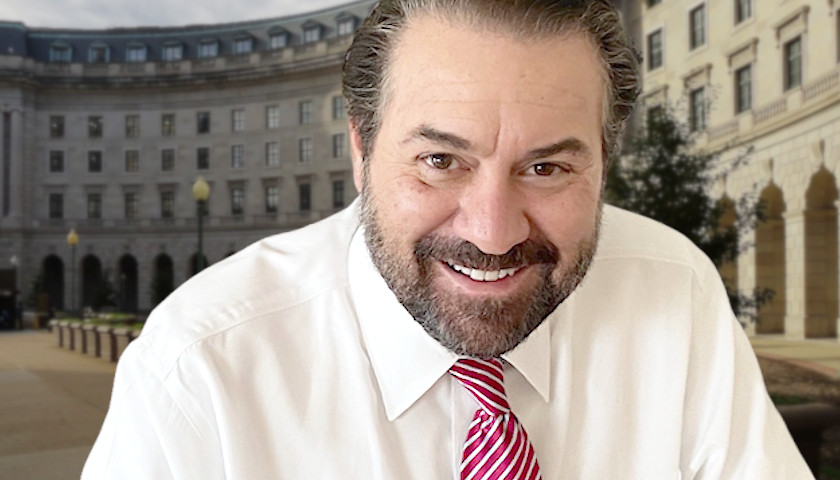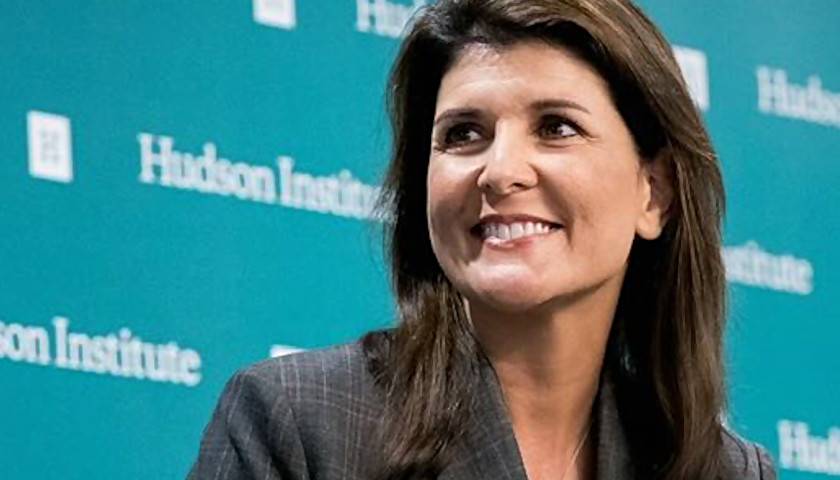Arizona Attorney General Mark Brnovich is leading a coalition of 24 states objecting to proposed rule changes by the U.S. Securities & Exchange Commission (SEC) that would require publicly-traded businesses to disclose information about their greenhouse gas emissions and discuss climate risks. The coalition filed formal comments indicating the 500-page rule titled “The Enhancement and Standardization of Climate-Related Disclosures for Investors” goes beyond the jurisdiction of the SEC and into environmental regulation.
In a 44-page letter addressed to the SEC, Brnovich and the others stated that the Biden “administration has tried and failed to impose regulation directly, and it now appears content to use back-door financial regulatory actions to implement its political will.” The coalition warned, “profit will become secondary to political interests, and capitalism will fall by the wayside.” The proposed rule “seeks to make ‘decisions of vast economic and political significance.’” They accused the SEC of “taking on major policy decisions that belong to Congress.”
Their letter stated, “It appears targeted against fossil-fuel companies.” They declared, “We oppose any effort to use the Commission to lock out the bluecollar enterprises and Main Street investors that actually drive this country.”
Climate change is not within the SEC’s area of expertise, the attorneys general pointed out. The Environmental Protection Agency is the expert in this area, and the rule change makes a “substantial intrusion into the EPA’s domain.”
They warned that compliance will cost businesses at least $500,000 each to comply — citing the SEC’s own estimates of $500,000 to $650,000, and suggest it may actually end up far higher.
The attorneys general laid out three reasons why the proposed rule changes violate the law. First, it lacks statutory authority. Congress has not given the SEC that power, and “an agency may not confer power upon itself.” The SEC is authorized to oversee price manipulation, misrepresentation, and other “serious abuses.”
It is supposed to address “material” facts, not disclosures regarding issues that the SEC hasn’t shown evidence of as being material.
If the SEC’s proposed rule is considered to be within its authority, the attorneys general said, it “could allow the agency to ‘protect’ investors from anything it chooses.” The proposed law intrudes into the states’ area of regulation, which illegally preempts the states.
In addition to disclosing information related to how much greenhouse gases businesses and their products emit, businesses would be required to explain how severe weather will affect them.
Second, the letter says that the rule violates First Amendment rights. The federal government cannot tell people what to say except under certain circumstances, most of which have been laid out in case law. In the case of requiring speech by businesses, the SEC would need to at minimum identify a “substantial” government interest, how the proposed rules advance that, and the rule cannot be “more extensive than necessary” to accomplish that. The attorneys general state that the SEC has not satisfied any of those criteria.
Finally, the attorneys general state that the rule changes are arbitrary and capricious since they do not reflect reasoned decision making. They point to the lack of consideration given regarding a cost-benefit analysis. Instead, the letter accuses the SEC of merely throwing around words like “consistency,” “comparability,” “transparency,” “comprehensive,” and “reliability.”
The letter cites an observation from SEC Commissioner Hester M. Peirce, who stated that the SEC found in 2010 that businesses are “already required to disclose certain material matters pertaining to climate change.” The SEC “vaguely promises that the Proposed Rule will ‘augment and supplement’ the existing guidance — but to what end?”
The letter accuses the SEC of representing only select investors when it said it relied on “investor demand” to justify its rulemaking. “The Proposed Rule also cites a single institutional investor guided by progressive political motivations — BlackRock — more than a dozen times.”
The letter said this is the result of the Biden administration pushing its climate agenda onto federal agencies. Biden instructed them to take “bold steps” reaching “every corner of our Nation, every level of government, and every sector of our economy.” The SEC followed suit, expanding its climate change agenda and directing “its Division of Corporation Finance to focus on climate-related disclosures in securities filings.”
The attorneys general note that the SEC asked for comment over a year ago regarding requiring climate change disclosures, and received considerable negative feedback, much of which stated the move would be illegal.
The letter quotes a commissioner who said the proposed rule “forces investors to view companies through the eyes of a vocal set of stakeholders, for whom a company’s climate reputation is of equal or greater importance than a company’s financial performance.”
The letter ends requesting that the SEC table the rule, declaring, “The Commission should end this farce and give up its dalliance as an amateur environmental watchdog.”
The NASDAQ stock exchange is also pushing back against the rule changes, citing the imposition of “additional complexity, costs and burdens on issuers, suppliers, and ultimately, investors.” Senator Joe Manchin (D-WV) noted that many companies already disclose climate-related information. California Attorney General Rob Bonta led a coalition of 20 states supporting the SEC’s proposal. When the rule was first brought up in March, the three Democratic commissioners voted in favor of it, while the lone Republican opposed it.
The other 23 states that joined the objection are West Virginia, Alabama, Alaska, Arkansas, Florida, Georgia, Idaho, Indiana, Kansas, Kentucky, Louisiana, Mississippi, Missouri, Montana, Nebraska, North Dakota, Ohio, Oklahoma, South Carolina, South Dakota, Utah, Virginia, and Wyoming.
– – –
Rachel Alexander is a reporter at The Arizona Sun Times and The Star News Network. Follow Rachel on Twitter. Email tips to [email protected].
Photo “Mark Brnovich” by Mark Brnovich.





